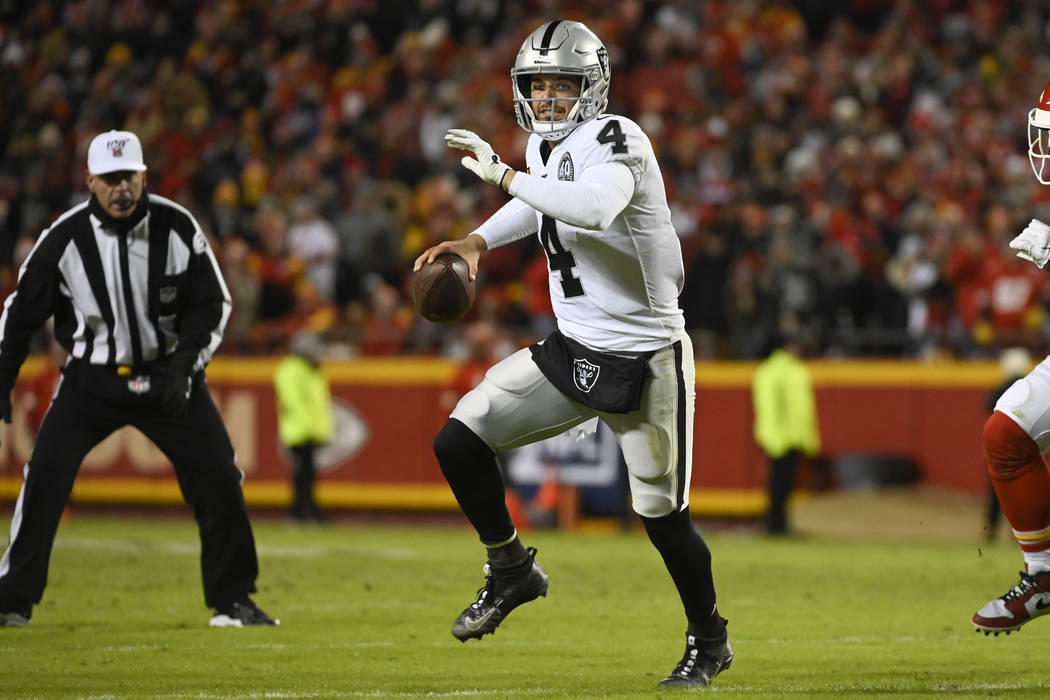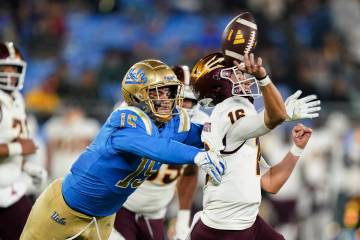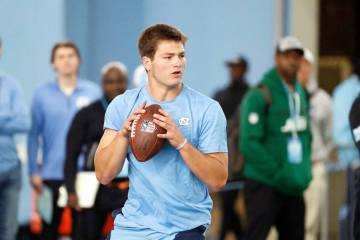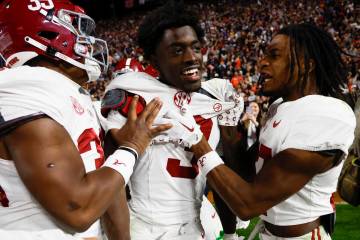Raiders continue to hurt themselves with offensive penalties
ALAMEDA, Calif — Of the Raiders’ league-high 104 penalties this year, 47 have occurred on offense - including five of their 12 penalties in Sunday’s blowout loss to the Kansas City Chiefs.
For an offense lacking a big-play downfield threat, facing self-created long-yardage situations is self-defeating.
On the Raiders’ opening drive against the Chiefs, tight end Darren Waller was flagged for offensive pass interference to change a first-and-10 to first-and-20. Josh Jacobs ran for eight yards on the next play to set up a predictable pass situation on second-and-12. Chiefs safety Tyrann Mathieu, anticipating a deep throw, guessed right, leaving his coverage assignment to pick off Derek Carr’s pass intended for Darren Waller. Kansas City scored on the ensuing drive to go up 7-0.
On the Raiders’ third drive, they marched to the Chiefs’ 33-yard line and were in good position on third-and-three to either pick up a first down or, at the very least, remain in comfortable field goal position if they didn’t covert. Instead, left tackle Trent Brown was called for a false start to force third-and-eight at the Chiefs’ 38. Carr was incomplete on his third-down pass. Faced with attempting a 55-yard field goal rather than 50, the Raiders opted to punt.
Penalties can be drive-killers for any offense. But for an offense stressed to produce big plays - the Raiders are 18th in the NFL with 37 pass plays of 20 yards or more - it’s an even bigger problem.
The Raiders were 3 of 9 on third downs on Sunday. Of the six they didn’t convert, the average distance to a first down was 9.8 yards.
“You have to stay on schedule. That’s the big thing in this league,” Carr said. “If you don’t stay on schedule, third-and-2 or third-and-3 is a lot different than third-and-7 and above. You’re going to get different packages, coverages. They’re going to make stuff up just to beat you. It’s a different game when you don’t stay on schedule.”
Until the Raiders add more explosiveness, they have to be an on-schedule offense that continually sets up manageable second and third downs to build sustained drives.
“So, it sounds cliche, but that’s a real thing and most of our games we’ve done a really good job of staying on schedule like that, making those third-and-shorts,” Carr said. “They are easier to pick up. They are easier to get first downs that way. Defense doesn’t know. You can still run the ball when you are at those kinds of downs and distances. But when you’re in longer situations, it’s kind of like, ‘What’s their call? What’s your call? Hopefully yours merges and yours wins, right?’”
More Raiders: Follow at vegasnation.com and @
Contact Vinny Bonsignore at vbonsignore@reviewjournal.com. Follow @VinnyBonsignore on Twitter.























